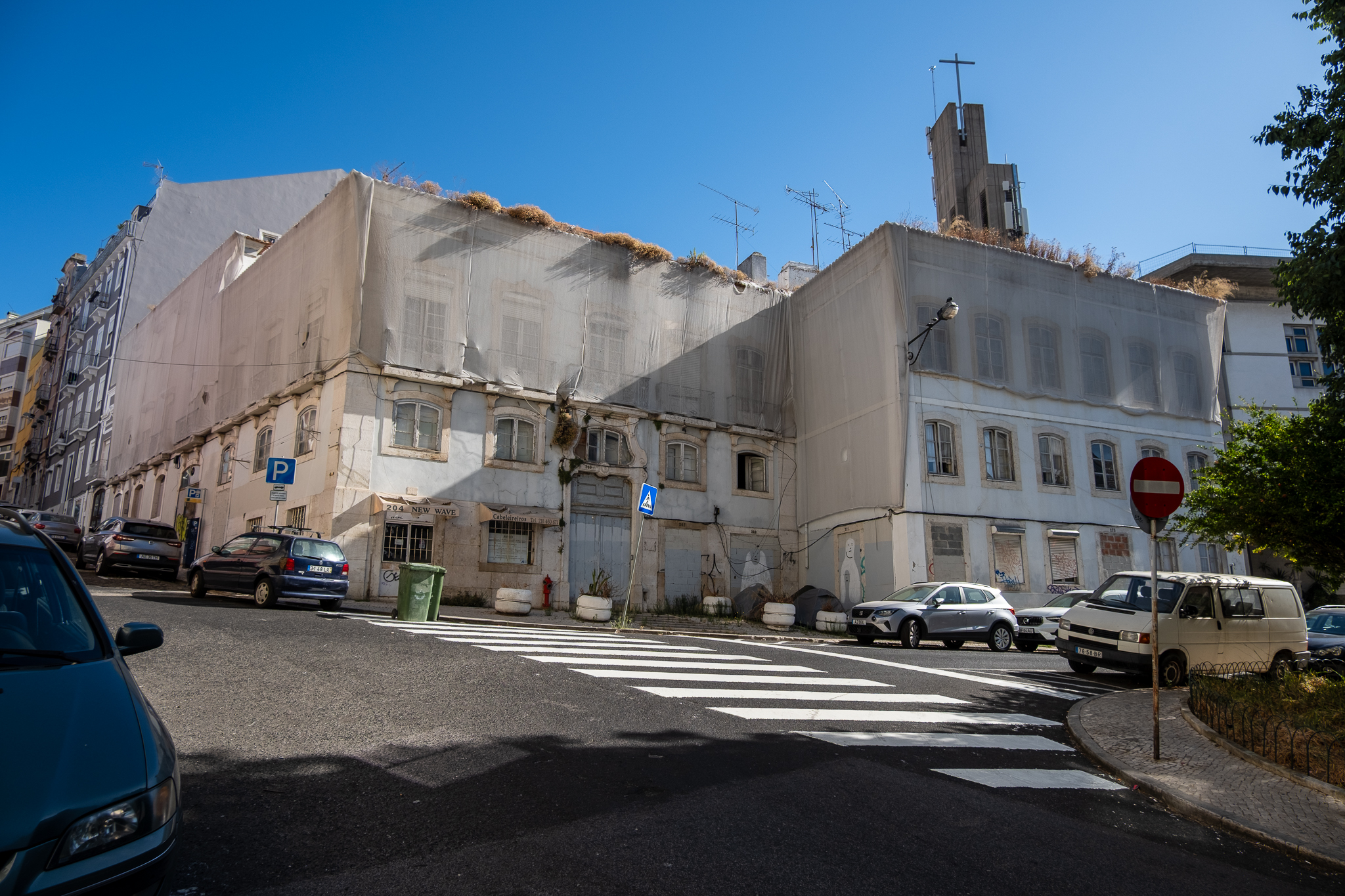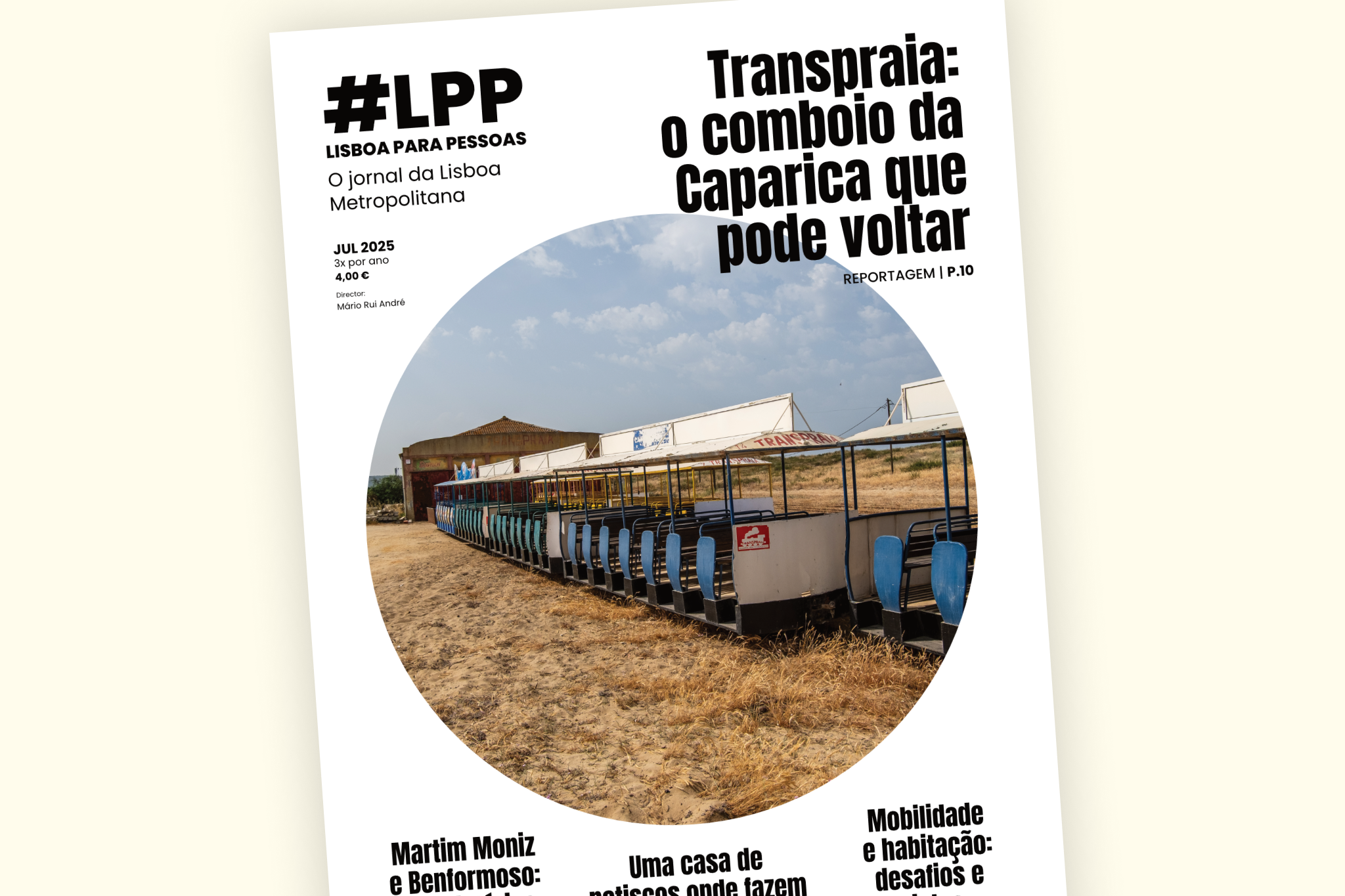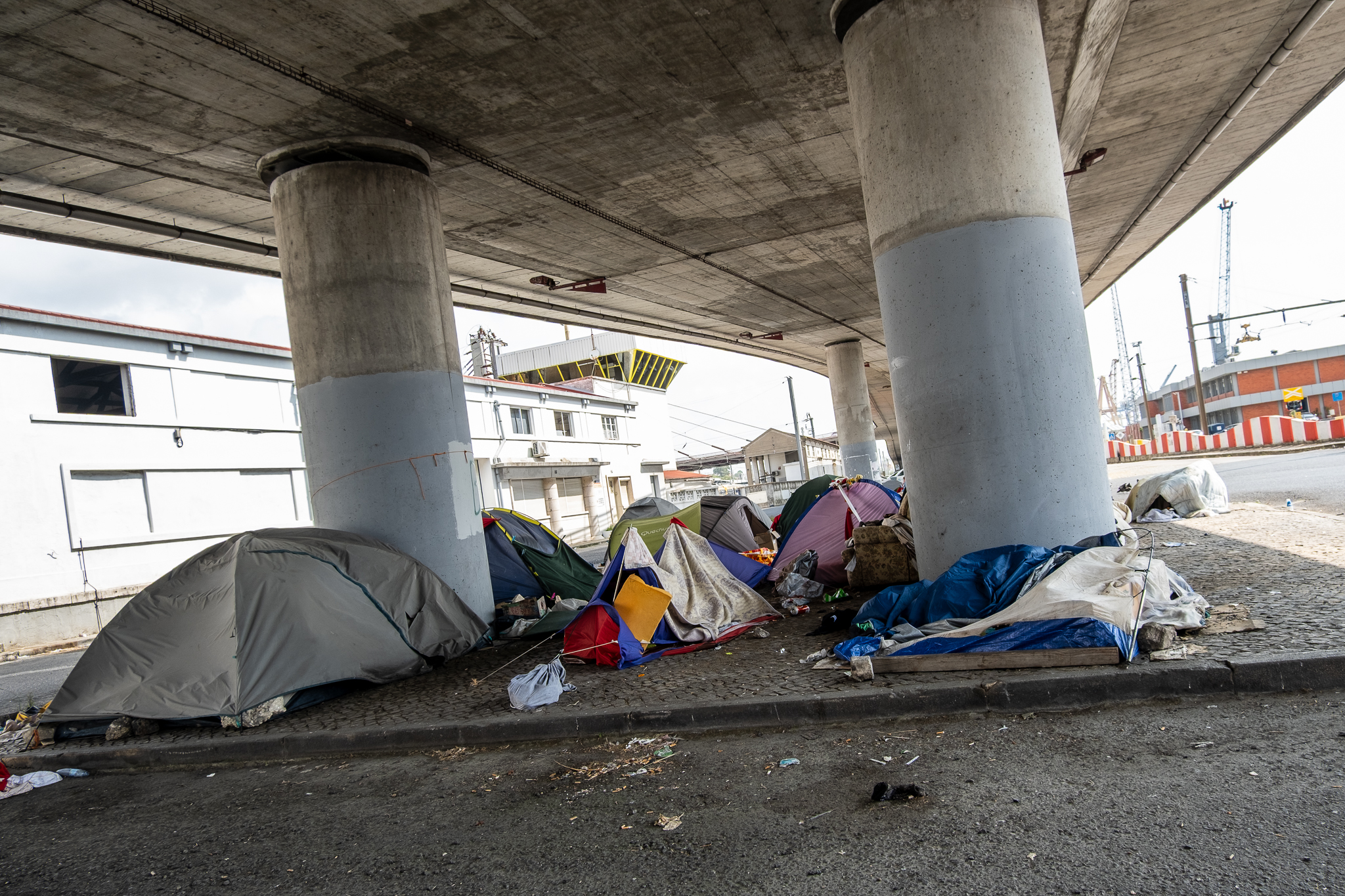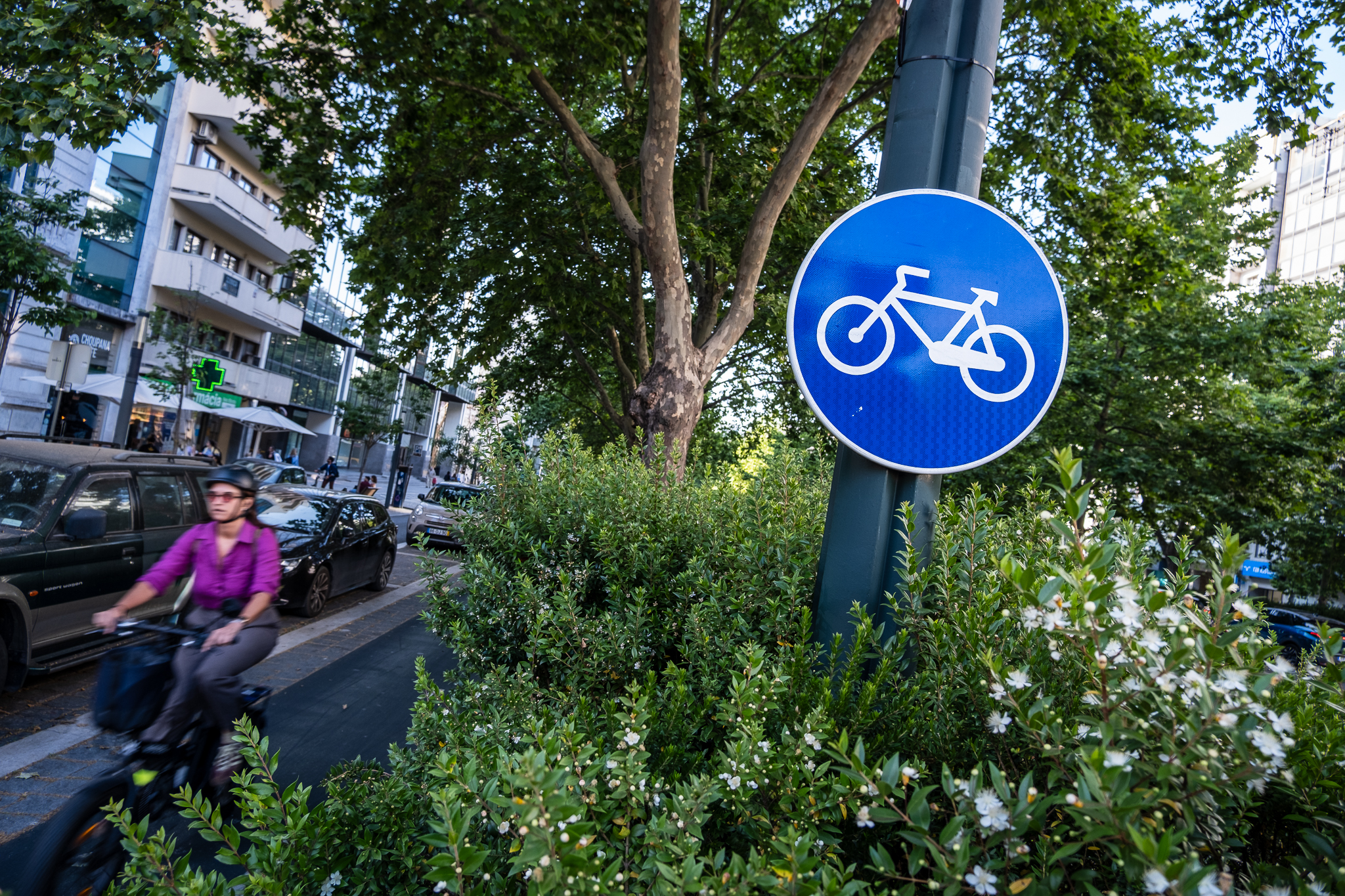Shall we talk about waste?
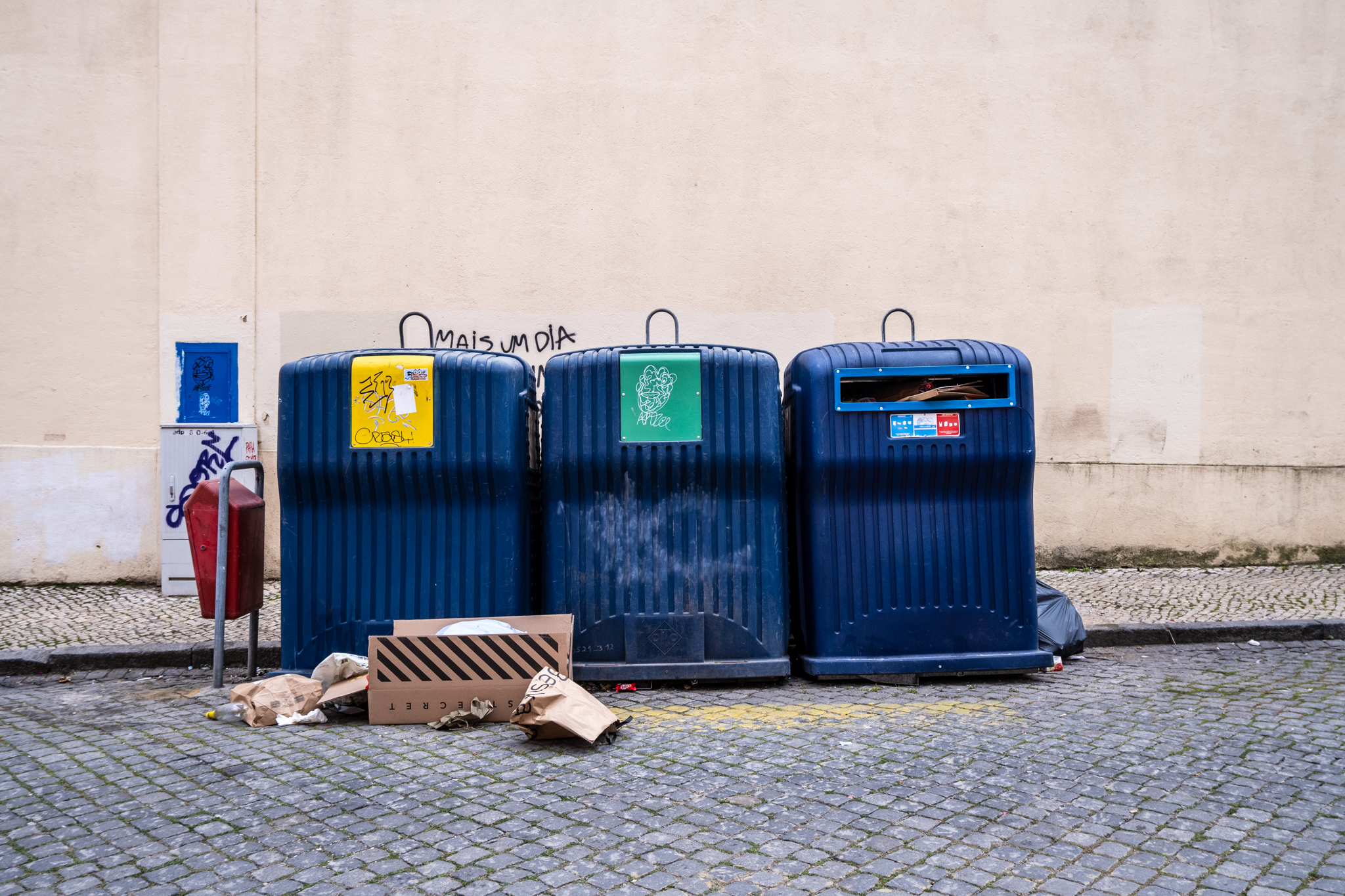
It was approved at a City Council meeting and is now in public consultation. Lisbon city strategy for municipal waste management. It is a document that defines the Lisbon municipality's waste prioritiesThe aim is to reduce the production of waste, increase selective collection and combat litter on the streets. This strategic document will contribute to the preparation later this year of a municipal action plan (called PAPERSU) to run until 2030.
O PAPERSU is an obligation of all municipalities, serving to concretize on a more local scale how to comply with the objectives and targets implemented by national documents - the RGGR (General Waste Management Regime) and PERSU 2030 (Strategic Plan for Urban Waste 2030). Lisbon is preparing its PAPERSU and the first step is the Lisbon Waste Management Strategy Document 2030, now approved and available for consultation and public participation until September 15.
Interested citizens can consult the document here below and send your comments via this online form.
According to the municipality, "Lisbon aims to be a city at the forefront of the best waste management practices, with the involvement of all who live or move around it, through better management of available resources, safeguarding the quality of the urban environment, health, a more socially and economically resilient society, contributing to sustainable development, transition to a circular economy and combating climate change.". Thus, the Lisbon Waste Management Strategy Document sets to the time horizon to 2030:
- Priorities for action in the field of municipal waste management;
- Meeting environmental targets by 2030;
- Strategic objectives for the prevention and reduction of waste generation, increase of separate collection of various waste streams and improvement of urban cleanliness and combating littering and illegal dumping;
- Cross-cutting objectives to strengthen awareness raising, information and training, supervision of measures and enforcement, innovation, new technologies, and information management systems, as well as improving operational effectiveness and economic/financial sustainability;
- Measures that aim to meet the defined objectives;
- Monitoring the implementation of each of the recommended actions and reporting the results obtained.
Specifically, the defined strategy foresees reducing food waste in restaurants and supermarkets, eliminating single-use plastics, promoting the circular economy through repair workshops or fairs selling second-hand products, stimulating the reuse and recycling of textiles, extending door-to-door selective collection and reinforcing the selective collection of waste such as glass, batteries, bio-waste and waste oils, expand home and community composting, improve the collection of cigarette butts, combat the incorrect disposal of waste in public spaces, develop awareness-raising actions among citizens, review the "Municipal Regulation of Waste Management, Cleaning and Urban Hygiene of Lisbon" or reduce GHG emissions in the collection and transportation of waste.
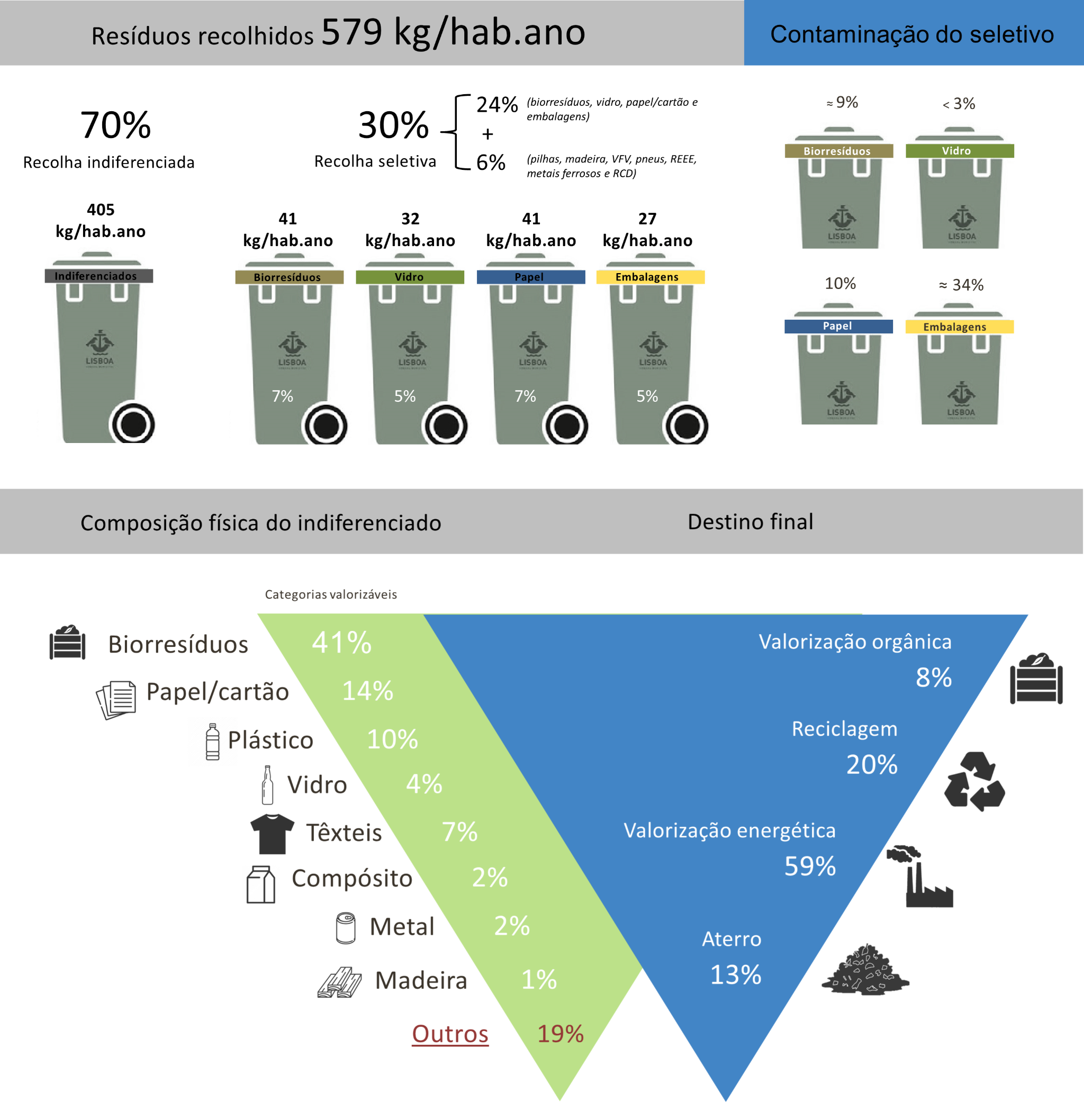
The Lisbon City Council document also makes a detailed analysis of waste management in the city, presenting some figures for 2022. According to the municipality, 579 kg of waste are collected per inhabitant, with the majority (70%) being undifferentiated collection (i.e. common waste) and 30% selective collection (i.e. waste that is separated). Bio-waste, glass and paper are the most collected materials in this field. Most of the waste of Lisboners has as final destination energy recovery (59%), but also recycling (20%), landfilling (13%) and organic recovery (8%). On the other hand, the document shows that Lisbon has failed to meet the objectives set out in the previous Municipal Waste Management Plan (2015-2020)The city was expected to produce 10% less waste in 2020 compared to the beginning of the plan and at least 42% less reuse and recycling. However, in 2019, the reference year, the city produced 647.4 kg of waste per inhabitant (when it should produce 529.3 kg) and reused/recycled 31% (a percentage that should have been at 42%).
"The current municipal waste planning and management policy, by recognizing waste as a resource, integrates action measures that aim to respond to climate and environmental challenges in order to achieve carbon neutrality objectives by 2050.", said Councillor Ângelo Pereira, responsible for Urban Hygiene, in a statement. O Lisbon Waste Management Strategy Document 2030 is available for consultation and public participation until September 15, via the municipality's website.

